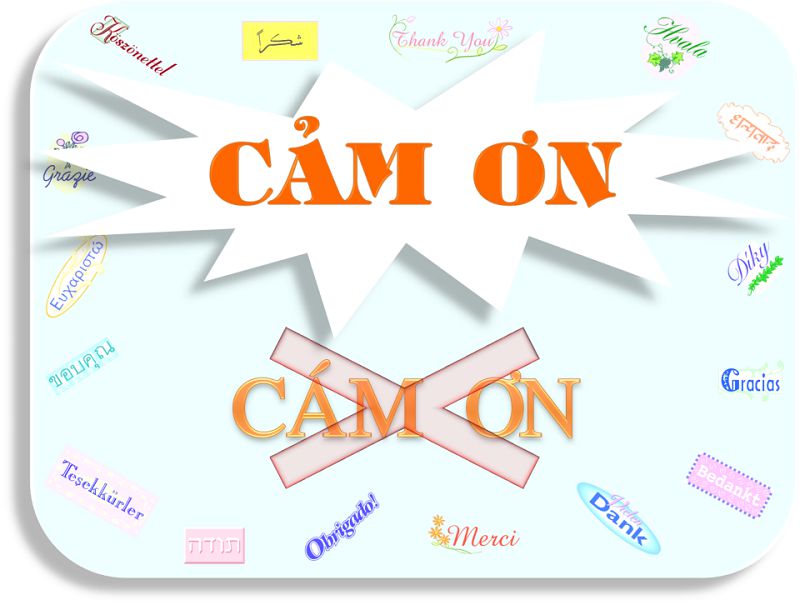In the previous article, you knew how to say hello in Vietnamese. The next, if someone helps you, and you want to say thank you, how to say that? Of couse, most of Vietnamese people (from child to oldster) can understand the word “thank you”, but they will be more excited if you say their language. So how to say thank you in Vietnamese?

How do you say thank you in Vietnamese?
Basically, “thank you” and “thanks” are same in Vietnamese, both mean “cảm ơn”:
“Cảm ơn” again and slower:
“Cảm ơn” is usually used in informal situation. For the formal, just add “xin” at the first of word – “xin cảm ơn”:
The word “xin” has no meaning, but Vietnamese usually add this word at first or last of a phrase to express the respect to other. “Xin cảm ơn” is usually used in bussiness, or say thanks to someone many years older than you, or has high status in society.
How to say thank you very much in Vietnamese?
How about thank you very much? In Vietnamese, “very much” means “rất nhiều”, so you add “rất nhiều” after “cảm ơn” – “cảm ơn rất nhiều”:
Again and slower:
“Cảm ơn rất nhiều” is very formal in Vietnamese, but if you want to express more gratitude, just add “xin” at first of the phrase (like “cảm ơn”) – “Xin cảm ơn rất nhiều”:
In fact, we rarely say “cảm ơn rất nhiều” or “xin cảm ơn rất nhiều” in daily comunication, both are not natural. So you just need to say “thank you” – “cảm ơn” (informal) or “xin cảm ơn” (informal).
How to say you’re welcome in Vietnamese?
In English, when someone says thanks to you, you will say “you are welcome”. So how to say that in Vietnamese? When someone says “cảm ơn” to you, you can say “không có gì” (for both formal and infomal):
Again and slower:
If translating word by word, “không có gì” means “it’s nothing”, but you can understand it means “you’re welcome” in Vietnamese.
Conclusion
“Cảm ơn” may be pretty hard to say for a foreigner, especially Westerner. So for easier, you can say “cám ơn”, instead of “cảm ơn”.
